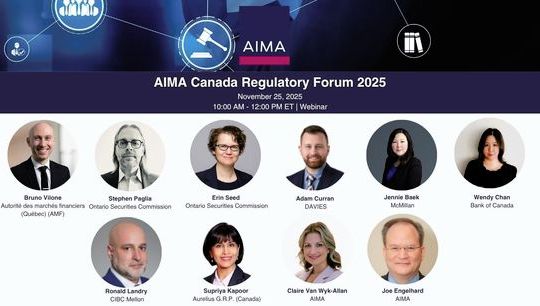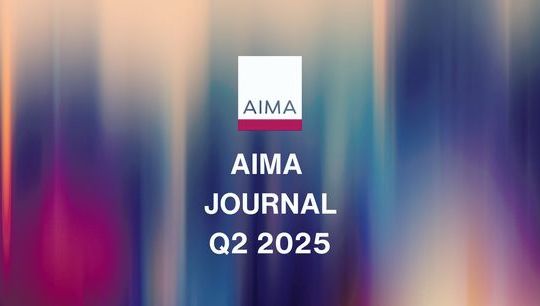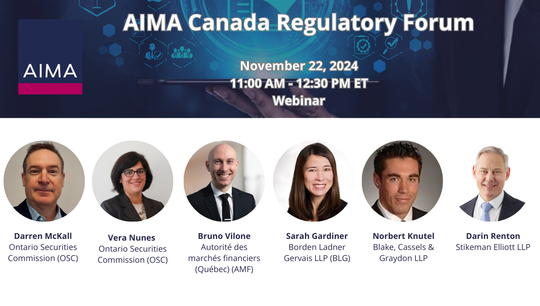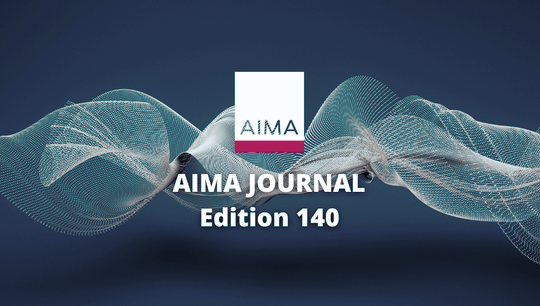The FCA's Asset Management Market Study Final Report
By Neil Simmonds, Partner and Robert Turner, Partner, Simmons & Simmons
Published: 25 October 2017
On 28 June 2017 the Financial Conduct Authority (FCA) published its Final Report in relation to the Asset Management Market Study launched in November 2015 to assess whether competition is working effectively in the asset management sector and investors are getting value for money.
The FCA also published a consultation paper (CP 17/18) in respect of some key remedies having concluded both that competition is not working effectively and that investors are not getting value for money. The deadline for responses was 28 September 2017.
The Final Report includes findings of weak price competition particularly for retail active asset management services and that investor awareness and focus on charges is mixed and often poor. The package of remedies proposed targets protections for investors the FCA has concluded are not well placed to find better value for money.
Within the package the headline remedy is perhaps the “strengthened duty on asset managers to act in the best interests of investors” and the package also includes governance requirements introducing independent scrutiny of that strengthened duty. This note provides a commentary on the concept of a “strengthened duty” and what that means.
Stage 1 - The Interim Report
A key conclusion in the FCA’s Interim Market Study was that investors are not driving the asset management industry to deliver value for money and that external help is required to help achieve that result for investors. The question was what form that external help should take. One option was “placing a duty on asset managers to demonstrate how their funds deliver value for money to investors”1 . At the same time, however, the FCA recognised that there was no “explicit and well defined obligation to seek value for money” for investors. So the Interim Report appeared to recognise a tension in placing a duty on asset managers to demonstrate how their funds delivered “value for money” when it was not explicit that they, in fact, had that underlying obligation in the first place.
So when the FCA concluded that authorised fund managers (AFMs) generally do not robustly consider value for money for investors, it seemed to be recognised that one reason for that was that it was not appreciated that AFMs had an obligation to do so in the first place.
Stage 2 - The Final Report
The FCA’s preferred route is not to impose an “explicit and well defined obligation to seek value for money” for investors, but to take existing regulatory duties that are more broadly expressed and clarify that those duties require AFM’s to provide value for money for investors.
The existing obligations the FCA has in mind appear to be those in the Collective Investment Schemes sourcebook (COLL) 6.6A (Duties of AFM in relation to UCITS schemes and EEA UCITS schemes) and Conduct of Business sourcebook (COBS) 2.1.1 (The client’s best interests rule).
COLL 6.6A, includes a duty to act in the best interests of Unitholders (COLL 6.6A.2(4)(a)), a duty to ensure unitholders are treated fairly (COLL 6.6A.2(1)), a duty to “act in such a way as to prevent undue costs being charged to any scheme it manages and its Unitholders” (COLL 6.6A.2(5)) and duties in carrying out its functions to act “solely in the interests of the UCITS scheme and its Unitholders” (COLL 6.6A.2(6)). COLL 6.6 does not contain the same general duties, although there are, even here, specific issues where regard is required to be had to the “best interests of investors”2.
The client’s best interest rule in COBS 2.1.1 is derived from MiFID and the UCITS Directive and provides “a firm must act honestly, fairly and professionally in accordance with the best interests of its client.” For a UCITS management company (such as an AFM of a UK UCITS or EEA UCITS) the “client” in the context is the UCITS itself, not the investors in the UCITS. COBS 2.1.4 recognises that and goes on to provide that a full scope UK Alternative Investment Fund Managers (AIFM) must, for all Alternative Investment Funds (AIFs) it manages “act in the best interests of the AIF, it manages or the investors of the AIF it manages and the integrity of market”.
As the FCA recognises in its Interim Report, there is no express reference in COLL or COBS to providing “value for money” for investors. The examples given of “undue costs” in COLL 6.6A.3 are unreasonable charges and excessive trading. Even so the FCA Final Report (paragraph 11.1) makes clear that the starting premise for the proposal that AFM boards be required to demonstrate value for money is an FCA clarification of its expectation that an AFM providing value for money for investors is a sub-set of the AFM’s existing obligation to act in the best interests of investors and to prevent undue charges3. At one level that makes perfect sense.
As a matter of common parlance “Is it in the best interests of investors that they get value for money?” - answer “Of course”. As a matter of the intent of the UCITS Directive (underlying COLL 6.6A), was it envisaged that the directive would regulate and harmonize across the EU an AFM’s approach to pricing - that is far less obvious. Indeed if COLL 6.6A did govern the function of determining client pricing, then the obligation in COLL 6.6A(6) “to act solely in the interests of the UCITS scheme and its Unitholders” would seem to wholly undermine any commercial profit-making incentive.
The Final Report explains the FCA’s rationale for preferring not to recommend that the Government introduce a fiduciary duty on AFM’s by statute, but to deal with the issue through regulatory reform. In doing so it refers back to the FCA’s April 2017 Feedback Statement (FS 17-01) “Our Mission 2017”, which, in rejecting the idea of introducing a general duty noted that for some regulated activities (specifically referencing UCITS and some AIF business) it already had “client’s best interest” rules which “have a similar effect to that of a fiduciary duty”.
The FCA also concluded a statutory duty would take longer to come into effect and would not provide the necessary clarity around the FCA’s expectations. Of course there is a middle ground between a statutory duty and clarifying existing regulations to give them new meaning; a new regulatory rule. At the level of underlying duty, that is not proposed either.
Stage 3 - Consultation
The “strengthened duty to act in the best interests of investors” will not on the FCA’s analysis involve any re-statement of the existing duties in COLL 6.6A or COLL 2.1. The “strengthening” component comes not in the duty itself, but in the FCA clarifying how it understands the existing client’s best interests rules - to implicitly include a duty to provide value for money for investors as a sub-set of the duty to act in their best interests - and in governance changes which are the subject of current consultation. So while there is a lot of granular detail in Consultation Paper 17/18 about what AFMs should be doing in terms of governance to assess a duty to provide value for money to investors - there is close to nothing about the extent of the underlying duty.
The Consultation Paper asks 10 questions under Chapter 3 dealing with providing value for money - all are about governance to assess compliance with a duty - none are about the underlying duty itself or the ambit of that duty. The Consultation Paper proposes “a new value for money rule” requiring the AFM to assess whether value for money has been provided to fund investors (proposed New COLL 6.6.20). Notable, is the presumption of an existing underlying duty on the AFM to provide value for money. What is being consulted upon is the imposition of a new duty to assess, not the ambit of the underlying duty.
Also subject to consultation are the minimum requirements for the assessment. That is of interest as the presumption must be that the minimum requirements for the assessment must delineate the FCA’s view as to the minimum ambit of the AFM’s underlying duty. The questions - “Do you agree the underlying duty exists?” and “Do you agree with its ambit as set out in this Consultation Paper?” - are not asked.
To illustrate how delineating an assessment requirement risks backfilling the underlying duty, the proposed requirements on AFMs in terms of assessment are summarised below:
Economies of scale
- identify economies of scale in direct and indirect costs of operating funds
- consider the introduction of break points
- consider whether savings and benefits should be shared with investors
- explain the decision if savings not passed on,
Fees and charges
- are charges reasonable in relation to the costs incurred?
- assess appropriateness of charges relative to quality of service, comparable rates and ancillary services,
Share charges
- consider whether different share classes offer value for money
- assess and explain why some investors are in more expensive classes,
Quality of service
- assess the quality of services received
- explain criteria used
- explain conclusions.
The FCA also proposes further governance changes “strengthening” the existing duty to act in the best interests of investors. These include:
- a new specific Prescribed Responsibility under SM&CR allocated to the chair of the AFM Board: responsibility for an AFM’s value for money assessments, independent direct representation and acting in investors’ best interests, and
- requiring a minimum two and at least 25% independent directors to the AFM board.
Take-away points
When the FCA talks about a “strengthened” duty to act in the best interests of investors, the underlying duty or duties in the FCA Handbook are not going to be amended or changed. Nothing new is proposed in terms of the underlying duty itself. What is changing is the FCA getting specific about what it understands “best interests” of investors to mean and to extend to - and that is not something on which the FCA has invited consultation.
The clarification that the clients’ best interest rules in COLL 6.6A and COBS 2.1 impose duties going to granular aspects of providing value for money is, however, both questionable, and a legitimate target for consultation responses even if not invited. However, if the point is taken that COLL 6.6A and COBS 2.1 (and the EU directives from which they flow) in fact fall short of imposing the duty the FCA now says they impose, then that invites explicit and well defined regulation.
If the ambit of clients’ best interests rules in COLL 6.6A and COBS 2.1 is going to be clarified in the way proposed for AFMs, what might that mean for the interpretation of COBS 2.1.1 in its broader context?
Whatever is, following consultation, provided in New COLL 6.6 by way of minimum requirements for AFM board assessment will, from an FCA perspective, then be regarded as defining the underlying duty of the AFM (as well as the assessment duty).
COLL 6.6 and 6.6A are capable of a direct right of action under s.138D Financial Services and Markets Act (FSMA) by a private person, so if, following consultation, the FCA’s proposals with respect to value for money are accepted, then a private person who has suffered a loss as a result of a breach of COLL 6.6A (or New COLL 6.6) will have a direct right of action against the firm. That would presumably be for the amount that private person (or group of private persons in a collective action) has been charged over what might be regarded as “value for money”.
Observation
As the FCA gets to grips with its new competition powers and responsibilities there may be a temptation to re-interpret rules and regulations drafted and consulted upon before that agenda existed, and imbue them with meaning convenient to the competition agenda when, in fact, that was not intended at the time. Pragmatism from the regulator in that respect may well be reflected by a degree of pragmatic acceptance by the regulated. Even so, there are tensions involved which might usefully be explored in this consultation process. While it may be commendable to minimise the extent of redrafting of the Handbook, there is something unsatisfactory about a detailed regime of assessment and governance to deal with an aspect of a duty which nowhere features in the underlying rules.
To contact the authors:
Neil Simmonds, Partner at Simmons & Simmons: [email protected]
Robert Turner, Partner at Simmons & Simmons:
[email protected]
Footnotes:
1. Interim Report paragraph 10.9
2. COLL 6.6.5A as regards resolution of conflict of laws issues undermining limited recourse principles for umbrella
schemes.
3. This is reflected in proposed New COLL 6.6.24. The FCA also places emphasis on Principle 6 and the duty to treat customers fairly.
Disclaimer:
This document (and any information accessed through links in this document) is provided for information purposes only and does not constitute legal advice. Professional legal advice should be obtained before taking or refraining from any action as a result of the contents of this document.







